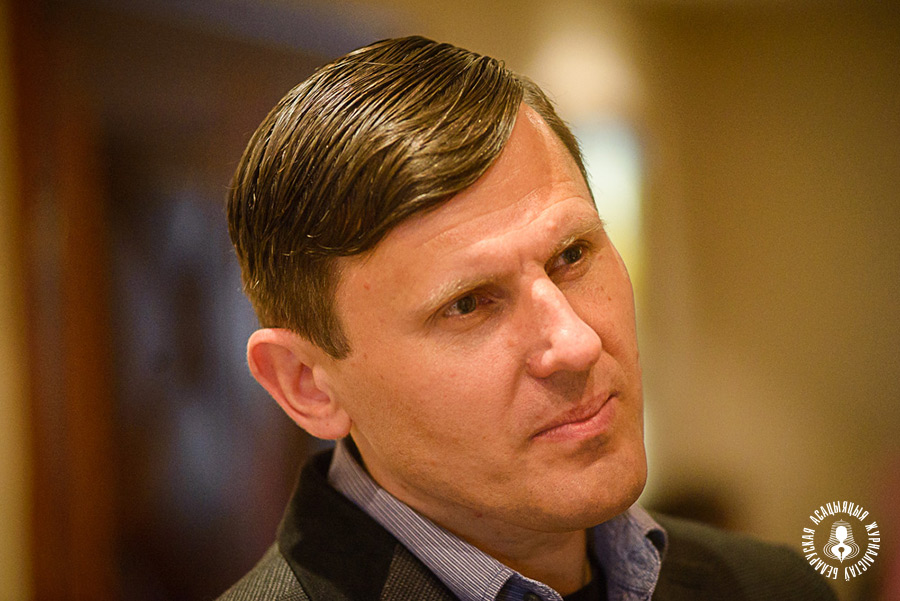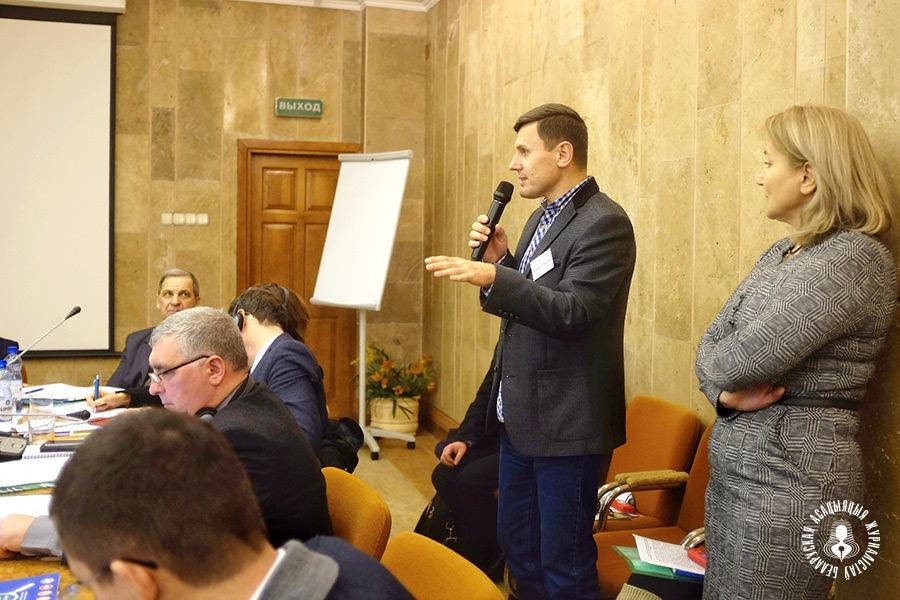Alexander Burakou: Some Receive President’s Awards, and Some — Only Fines
25-30-year-olds are taking the lead in newsrooms and management of media outlets. They are the people of different mind frame. Their values and ideas are different from those of the generation who created the independent media of modern Belarus.
Journalist Alexander Burakou discusses the generation gap and why those the fighters for the freedom of speech of the 1990s have lost.

— Belarus’ has been independence nearly as long as it’s been ruled by an authoritarian leader. There groups with different mind frames in the country: those who know Soviet Belarus, those, who remember Belarus without Lukashenka and those, who’s always had Lukashenka as the leader of the country. They all are very different.
Thinking about journalists, it is important to remember the people who made a conscious decision to leave the state-run media in the mid-1990s and started new media. They had a moral choice to make: either you remain part of the system and get bonuses, or you choose a pro-democratic camp and your future is unpredictable.
What does work in state-run media mean now and then? This is minimum pressure, perks and privileges, legal holidays and bonuses, and an opportunity to get cheap mortgage loans. And many decided there was no point in «having an attitude», with a cushy job and good salary, social benefits, and an opportunity to retire from the same job (unlike freelancers). Flirting with the authorities is usually beneficial.
However, there were people of moral fiber who left for the private sector. And their lives have turned out differently. Some have succeeded in writing and running a business, and some have not. They are forgotten by the new generation.
The discussion at BAJ conference on the prospects of freelance journalism in Belarus showed that foreign colleagues need to now more about the reality of Belarus. For example, they are thinking of state-run and private media, while the journalists in their mind are democratic and.. democratic. It is impossible to imagine a situation in developed countries, where a journalist of some media may be called «disloyal» and bullied at a national level.
They bring their experience to our reality, and fail to understand the whole drama.
Of course, the people who remained in the state-owned media are closely watching the fate of their colleagues from the other camp and understand everything perfectly well. What do they see? The burning sense of justice leads to persecution by police, KGB searches, unexpected letters from tax inspectorates, and fines. No leg to stand on. Only on the sense of professionalism and morality. The honest people of mid-1990s now look as «losers» to their unscrupulous peers.
This is what I wanted to explain to the foreign colleagues working with Belarus. Persecution of freelancers is now especially rampant in Belarus. This is especially true of those who work for Belsat. But who starts to work for this channel? To be honest, the vast majority of reporters are the people who came to the profession from civic activism, just after short courses. They are young people who have learned to report news only in the Polish TV system, and have seen no alternatives.

Alexander Burakou speaks during a freelance journalism conference
However, we used to have Belaruskaya Maladziozhnaya radio, and some worthy TV shows on the Belarusian TV of the earlier kind. They were run by professionals whose names are still remembered in Minsk. And where did they go, why not use their experience? Meanwhile, they were the ones who once made the moral choice we are talking about. Young freelancers have a more cynical view of life, they just do not care about the events of 20 years ago.
— The lives of a journalist or a social activist in Minsk and in the regions are different. How does it feel, to be in the limelight all the time?
— When I say that we get pointed at, I mean the regions, first of all. After all, there are more opportunities in Minsk, there is an environment to grow and move. Take, for example, the late Vadzim Arshynski, former cameraman of the Mahiliou regional TV, who I worked for Belsat with. In the early 2000s he was filming Lukashenka’s visit to a collective farm, and at some point the camera caught Lukashenka with dear horns painted on the wall in the bckground. Of course, the footage was not broadcast, while Vadzim Arshynski, who was one of the fathers of television in Mahiliou, lost his job right away. Who else would need a cameraman in Mahiliou? This meant unemployment for years to come.
— But Lukashenka gives awards to journalists. That means, modern journalists also have a choice to make today, there are different criteria for assessment of one’s own success and ensuring security. And in the eyes of their own circle, a person will gain success.
— This is what we need to explain to the foreign counterparts who come here and want to help, or to do some activities, in the trendy «partnership with the authorities and state-run media».
The system does not need the people who are ready to work in the field, sometimes knee-deep in mud, and to raise really important issues. The journalists who covered the situation around the bleached pulp factory in Svetlahorsk, were fined. The state journalists do not go there and and do not report on the situation, even though it is a real problem. This is a clear example of different frames of references. In the end of the day, some get fines, and some — awards from the hands of the state leader.
— What do you expect from the international community?
— Today’s realities, unfortunately, counter-balance the sacrifices that have been put by the older generation on the altar of democracy. So many years have passed, the regime is still in power, and the lives of many people who chose that path went sour. The older generation of our foreign counterparts who worked with Belarus in the 1990s and called to defend fundamental democratic values, have retired without seeing any changes in Belarus.
And now, the new generation of Europeans is looking for new approaches. They say: «Let’s cooperate with the authorities», «How can we help? Let’s do something together with the journalists of state-owned media». Many grant eligibility criteria require state registration or at least some cooperation with the state authorities from potential grantees. True story: Belarusian National Youth Union receives support as an NGO, and these funds ply within the state system.
And my question is: isn’t this approach a betrayal of the people who made a moral choice 20 years ago?
Today, I can’t say that the colleagues from our circle are optimistic about the future. They feel growing fatigue. If one does not see the results, and they are not 20 anymore, but 35–40, they start asking themselves, where they are and what they have achieved.
We are changing, and not for the better, I am afraid. In Mahiliou, we held a debate between political activists and journalists . The generation gap became obvious. The older generation treats the profession and all their activities as a mission and a true purpose. Younger journalists perceive journalism as a business: if there is good money, they would endure repression, with no money, the cloud-built values seem silly. It seems, the older generation, has lost to everybody. To the regime, as it is still here, and the younger generation, for whom it’s just business and cold math.
***
Alexander Burakou
In the profession since 1998. He started his career at the Mahiliou regional television, followed by writing Mahiliou Weekly and De Facto newspaper. Since 2006, he worked at Radio Racyja, and then collaborated with Belsat TV. For the last 8 years, he’s been a reporter of Deutsche Welle in Belarus.
 @bajmedia
@bajmedia
